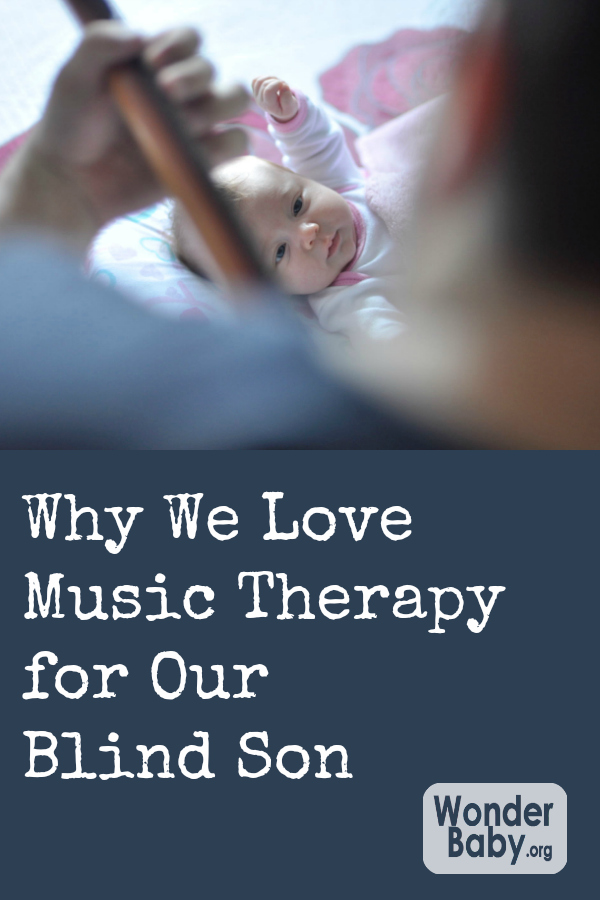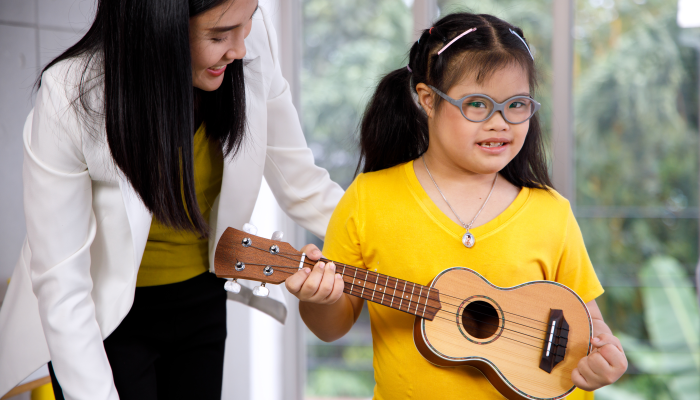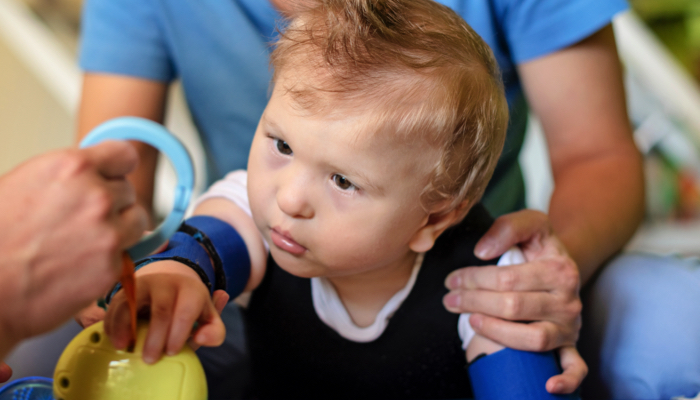Why We Love Music Therapy for Our Blind Son

By Jennie S.
Most of us are very aware of the array of therapies commonly suggested, or even prescribed, by the medical and educational professionals involved with our children’s care. There is physical therapy, speech therapy, occupational therapy, services from a teacher of the visually impaired, and the training provided by a certified orientation and mobility instructor—just to name a few.
For my son Max (almost 4 with bilateral anophthalmia and developmental delays), most of these therapies have not offered much success. In fact, they have been extremely ineffective. Often, the therapist has never met a child who is blind and is intimidated or struggles to make appropriate accommodations to her strategies. Traditional therapies tried so far simply have not considered Max’s learning style and have failed to include any of his interests. Because of this, we dropped most of the related services from his Individual Education Plan (IEP) — we saw no value putting him through an experience that has no productive outcome and only causes him stress.
However, recently we decided to try an approach that we are so excited about I simply must share it with you—MUSIC THERAPY!
Music has played a vital role in Max’s life from the day he was born. At birth, I stumbled upon the best way to calm him after HOURS of crying—Bruce Springsteen’s Devils and Dust album! I put it on (to calm myself) and instantly he stopped crying. To this day, we never leave the house without that CD. Max listens to a wide variety of music each day, enjoys playing musical instruments, and although he does not speak, he can hum over 100 songs. Clearly, he relates to music.
While attending a local conference relating to blindness, we met a music therapist and were fascinated to learn how she uses this technique as a method to help children with disabilities make gains in every area of development. This is not to be confused with music lessons. Through a certified music therapist, specific, individualized educational and developmental goals are created and then strategies, through the use of music, are implemented.
Using music, Max is learning a wide variety of general concepts as well as communication skills. He enjoys the time with his therapist versus simply tolerating or even screaming through the entire session as with previous therapies. His interests are valued and he is able to approach a structured learning opportunity in a fun and meaningful manner—imagine that?! Also, parents are included in the session so we can carry over the strategies at home.
If your child enjoys music as much as ours does, you may want to visit The American Music Therapy Association and learn more about music therapy.
In the United States, this is a recognized therapy by SOME school districts, health insurance companies, and state Medicaid Waiver programs that may provide funding just as they do for more traditional therapies. So, grab that guitar, plink on the piano, bang those bongos, or just get krazy with a kazoo—have fun and learn through MUSIC!
Happy hummin’ and strummin’!

Related Posts

Autism, Music Play
6 Ways Music Therapy Can Support Children With Autism
By harnessing the power of music, autistic children can develop communication, social, emotional, cognitive, and motor skills. Here’s how!

Eye Conditions and Syndromes, Support, Visual Impairment
Coping with a Diagnosis: Emotional Support for Families with Visually Impaired Children
Families with emotional support are more resilient. Learn how to establish emotional support with peers, professionals, and the community to help your family thrive.

Special Needs, Visual Impairment
Why Early Intervention Is Critical for Blind Children
Children diagnosed with visual processing disorders, low vision, or blindness need specialized treatment. Early intervention programs can help.